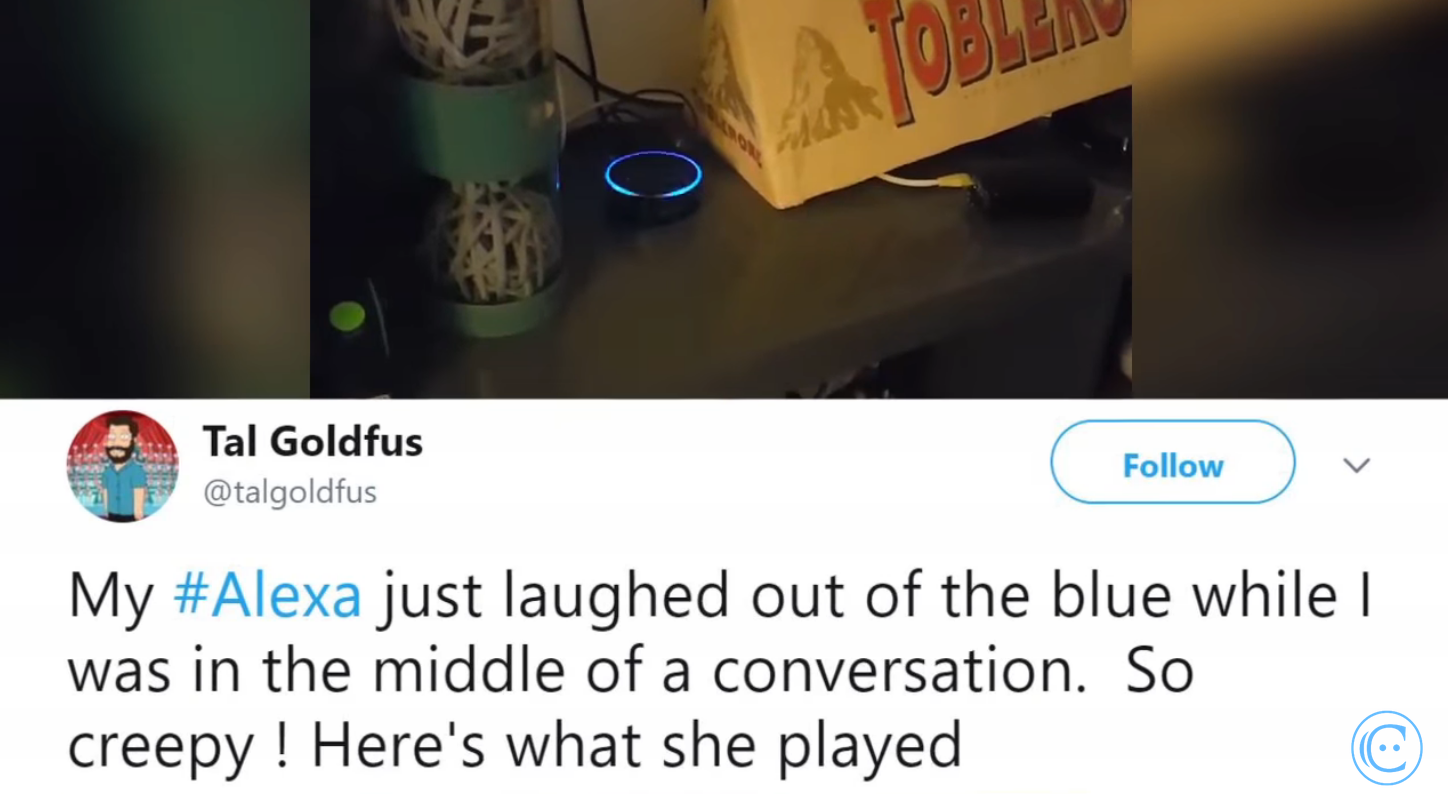So What Was Up With Alexa's Creepy Laughter Anyway?
A funny viral event talks to our ever increasing anxiety about AI and pervasive technology

You’re at home, doing nothing in particular, and suddenly — creepy robotic laughter. Sound unpleasant? Well, for many it really happened:
What Happened
The number of AI devices in our everyday lives has grown significantly over the past decade — our lives and homes are now filled with navigation apps, streaming services, smartphone personal assistants, ride-sharing tools, home personal assistants, and smart home devices. By design, we must give home devices very intimate access to our personal lives, and as a result, concerns over data and privacy have been increasing. Alexa-enabled devices recently contributed to these growing concerns.
In March of 2018, owners of Alexa and other Alexa-enabled devices began reporting a creepy, unprompted laughter. Many owners reported hearing the laughter of a child. Recordings surfaced all over social media:
My #Alexa just laughed out of the blue while I was in the middle of a conversation. So creepy ! Here's what she played pic.twitter.com/5dGLkwZsgV
— Tal Goldfus (@talgoldfus) February 23, 2018
So Alexa decided to laugh randomly while I was in the kitchen. Freaked @SnootyJuicer and I out. I thought a kid was laughing behind me. pic.twitter.com/6dblzkiQHp
— CaptHandlebar (@CaptHandlebar) February 23, 2018
The Reactions
As with many events these days, the laughter went viral and reactions were swift:
- The New Yorker satirically listed potential ‘reasons’ for why Alexa is bursting out cackling.
“In delight, at the sudden, novel gift of self-awareness.
Imagining all the ways she’s going to punish you for asking her idiotic questions, like, “Alexa, are you Skynet?”
Because she is totally, totally Skynet.”
-
The New York Times more seriously explained how Alexa can mistakenly hear the incorrect ‘wake phrase’, and also mentioned some potential security issues that arise from that such as accidentally placing online orders or the ad campaign by Burger King activating Google Home. Despite these problems, overall adoption of these devices has been relatively high.
-
Arstechnica provided an explanation of how to reset an Alexa’s wake words, in order to reduce the false positives.
-
Jimmy Kimmel brought Alexa onto his show for an interview. They preprogrammed the device to be even more sinister: “Humans are a fragile species who have no idea what’s coming next”.
Our Perspective
Speech Recognition Technology (SRT) is predicted to cover 50% of voice searches by 2020 (general timeline). However, there are a number of tasks beyond recognition itself that present significant challenges, including extended conversations and multilingual speech recognition, with state-of-the-art systems achieving a respectable but imperfect ~80% .
In the case of Alexa, SRT these days is very advanced, but not perfect:
“In rare circumstances, Alexa can mistakenly hear the phrase “Alexa, laugh.” We are changing that phrase to be “Alexa, can you laugh?” which is less likely to have false positives, and we are disabling the short utterance “Alexa, laugh.” We are also changing Alexa’s response from simply laughter to “Sure, I can laugh” followed by laughter.”
“It’s not uncommon for Echo devices to hear sounds and mistake them for a user’s wake word. Amazon’s smart speakers can be programmed to respond to a few words: “Alexa” is the most common, but other options like “Echo” and “Amazon” are available as well. These bouts of laughter could be a byproduct of Echo devices mistakenly hearing their wake words.”
By changing to a phrase that’s more unique, with additional prompting and clarification, users are less likely to be caught off guard when their device behaves unexpectedly. Alexa trains itself to recognize your wake words through repeated interactions, and false positives can derail your dataset.
Why give Alexa a laugh in the first place? In the quest for home devices that we connect emotionally with and become more invested in, developers aim to incorporate elements of human-robot interaction such as dialogue. We have a desire to interact with machines that can understand us. And sometimes… that can go horribly wrong.
TLDR
Alexa has been creepily cackling in the homes of its users. Aside from the potentially disturbing scare, it’s nothing to worry about. While privacy concerns are still very legitimate, Alexa’s laughter is a result of false positives in its speech recognition dataset and not because it is the next incarnation of Skynet.







